Archive for month: July, 2025
The visit of a delegation from Guangdong University of Science and Technology to the Centre for Chinese History and Culture at the University of Macau
/in Article, News /by Tong Ho Kei stephenietongOn the afternoon of July 6, 2025, a group of 120 faculty and students from Guangdong University of Science and Technology visited the University of Macau for an academic exchange. Accompanied by Macau Guo Yu Technology Limited and the Centre for Chinese History and Culture at the University of Macau, the visitors toured several iconic locations on campus. These included the “Wall of Great Wisdom,” which embodies the university’s motto and its talent cultivation philosophy of “Great Knowledge” and “Great Character,” the University of Macau Library, which boasts a rich collection, and the University Exhibition Hall, which showcases the institution’s history and achievements.
Finally, the group visited the Centre for Chinese History and Culture, where they attended a special lecture titled “Embracing a New Era of Human-Machine Collaboration,” delivered online by Prof. Xu Jie, Dean of the Faculty of Arts and Humanities at the University of Macau. Prof. Xu analyzed the opportunities and challenges of the artificial intelligence era from a humanistic perspective, sparking enthusiastic discussions among faculty and students about the future integration of education and technology.
This visit not only promoted academic interaction between universities in Guangdong and Macau but also opened new avenues for collaboration in the field of humanities and technology.
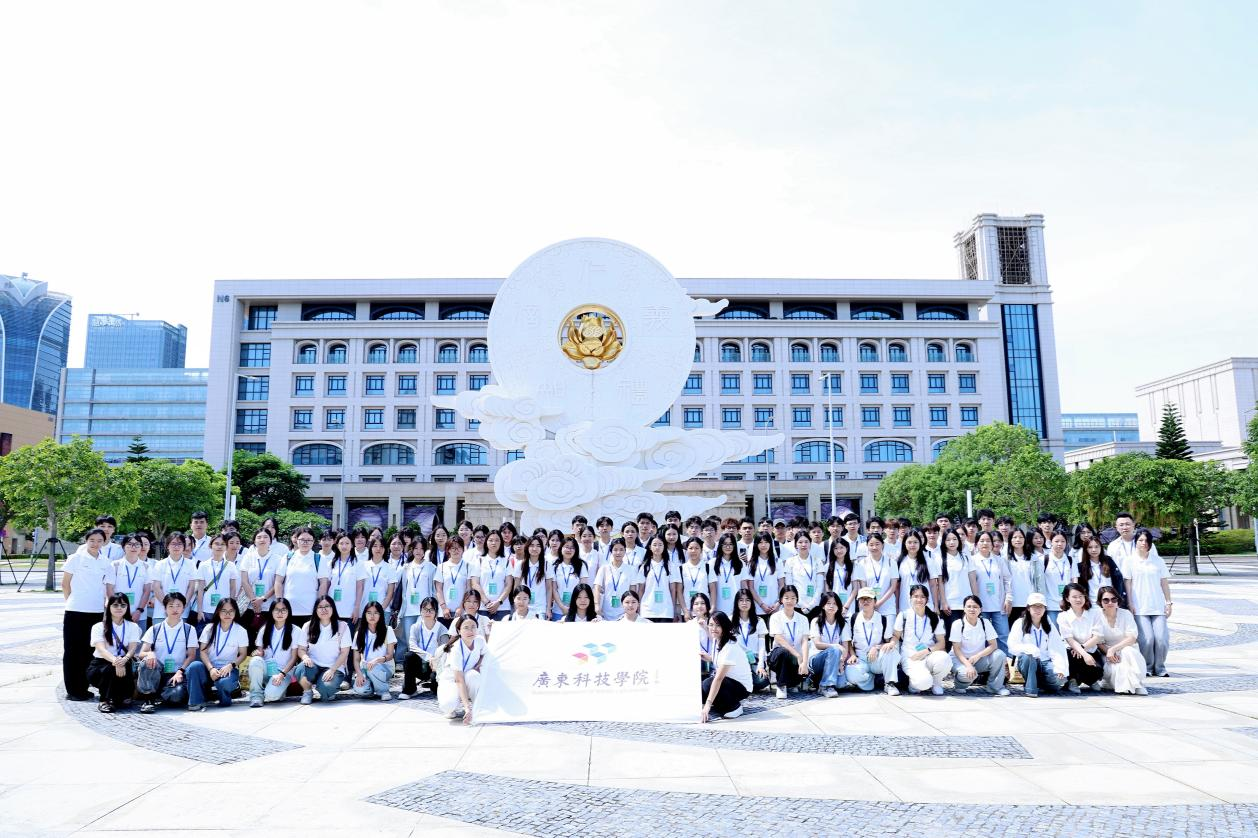
Delegation from Guangdong University of Science and Technology visit “Wall of Great Wisdom”
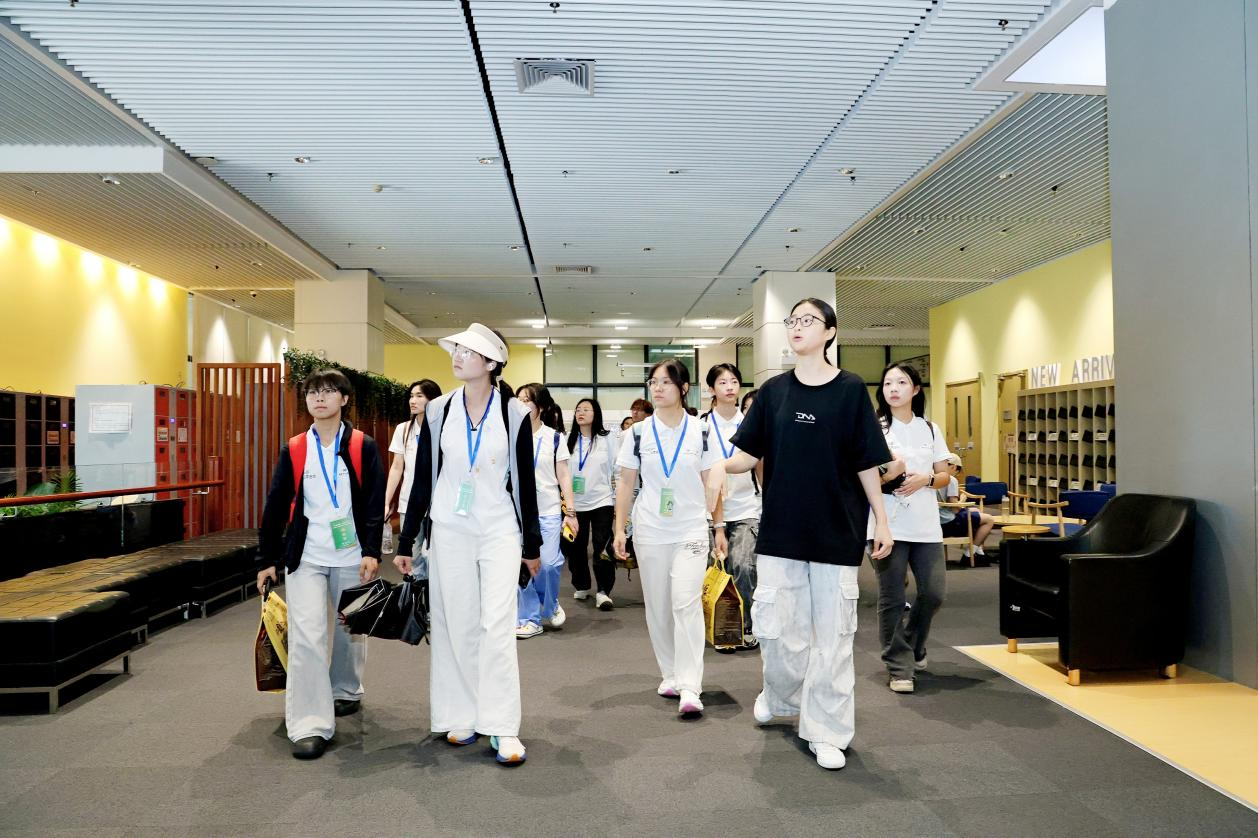
The delegation visit UM Library
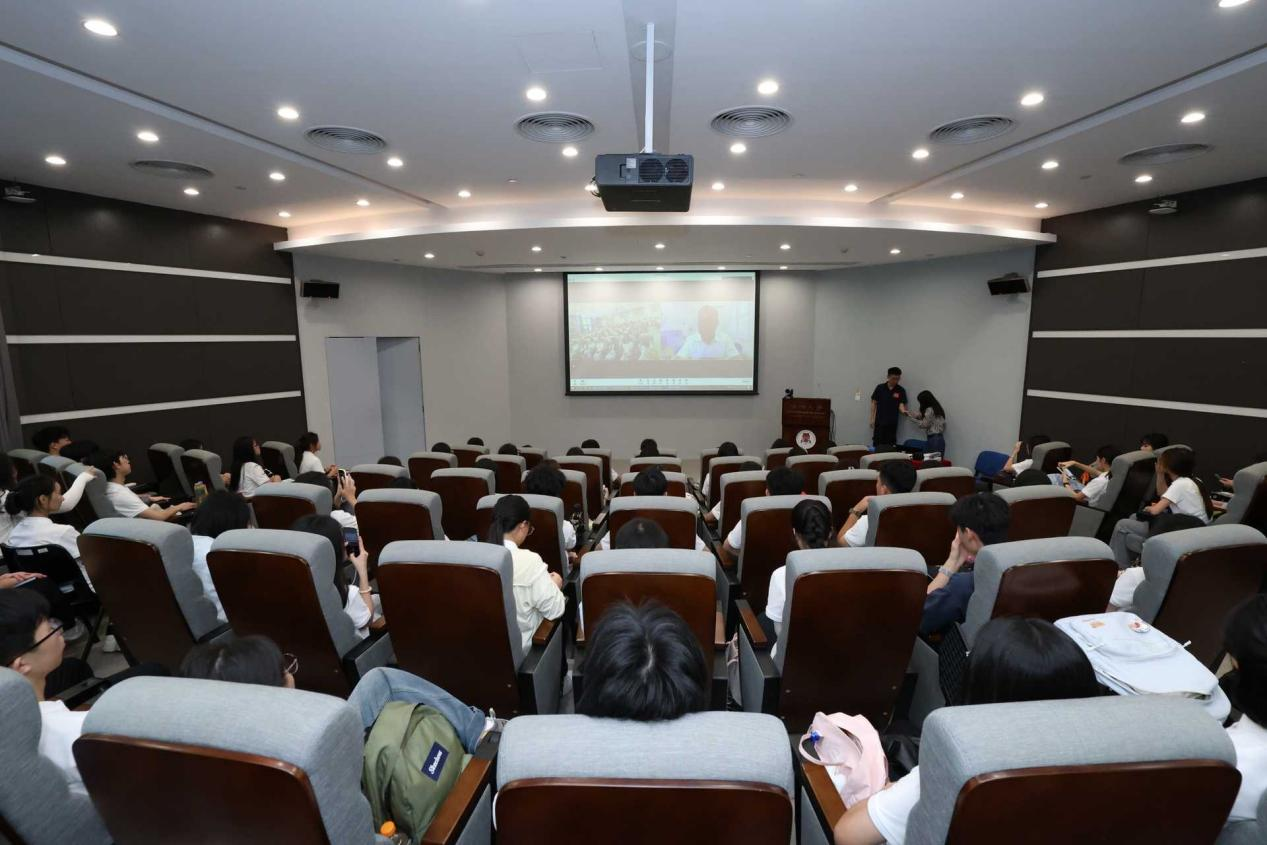
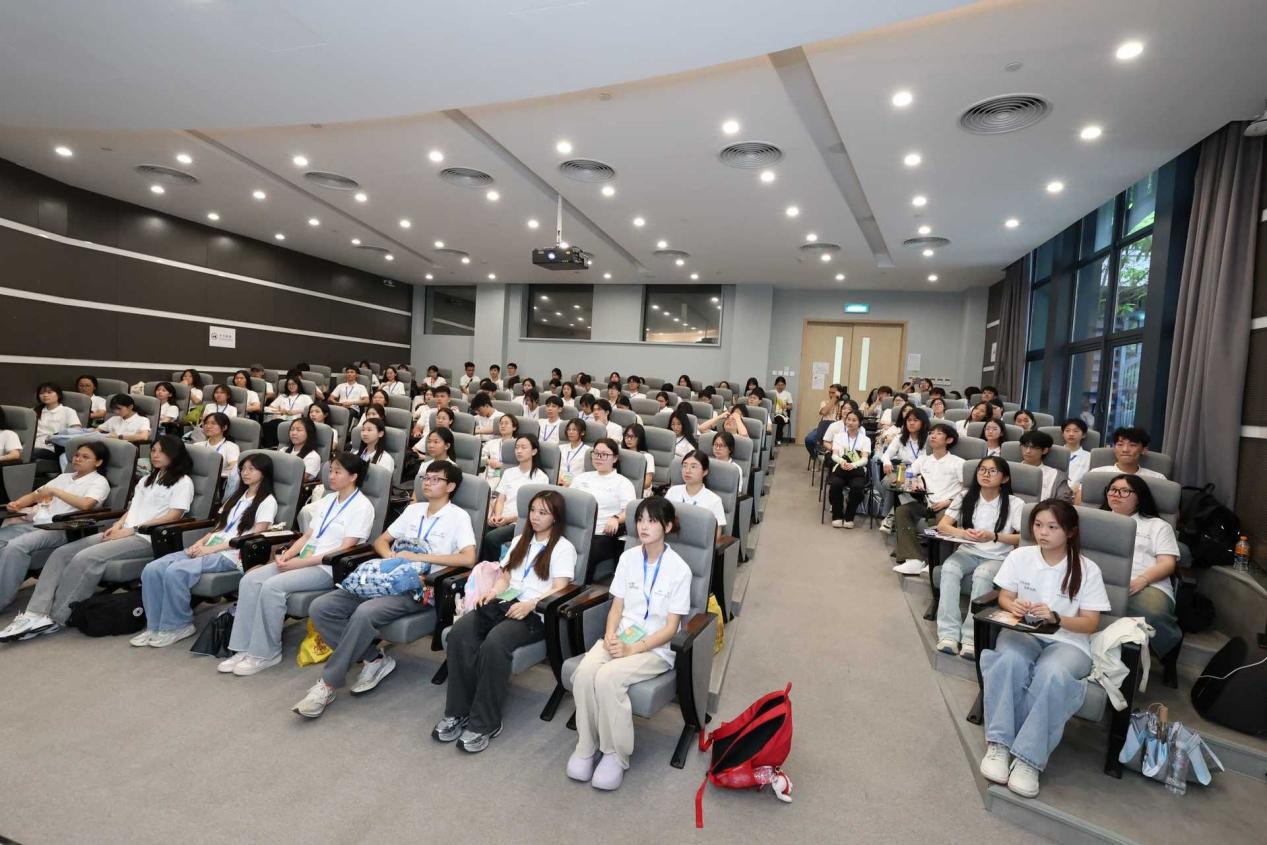
Professors and Students of Guangdong University of Technology Attend Lecture by Professor Xu Jie, Dean of the School of Arts and Humanities
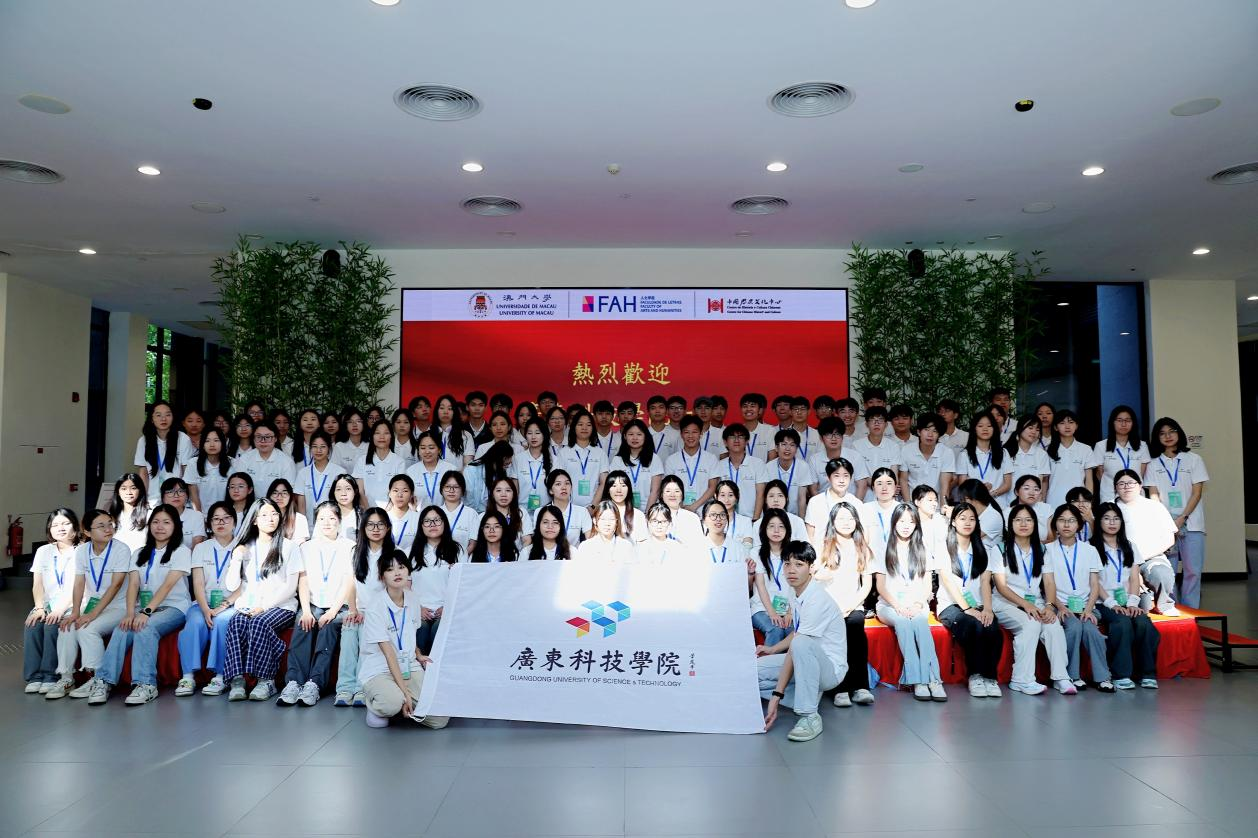
Professors and Students of Guangdong University of Technology visit the Centre for Chinese History and Culture of UM
The Centre for Chinese History and Culture of the University of Macau Visits Eleven Schools to Build a New Platform for Chinese Historical and Cultural Education
/in Article, Event, News, News Letter /by Tong Ho Kei stephenietongFrom June 3 to 13, 2025, Dr. Cheang Neng Ian, Deputy Director of CCHC at the University of Macau, along with Principal Administrative Officer Ms. Leona Kuan, led a team to visit eleven schools, including Colégio Diocesano de São José, Cinta Escola (Chinese Section), Colégio Dom Bosco (Yuet Wah) (Chinese Section), Yuet Wah College, Our Lady of Fatima Girls’ School, Sacred Heart Canossian College (English Section), Sacred Heart Canossian College, Macau Kung Luen Vocational & Technical Middle School, Education and Health School, Kao Yip Middle School, Escola Dom João Paulino, Escola da Associação Geral das Mulheres de Macau, and The Affiliated School of the University of Macau. The discussions focused on topics such as the inheritance of Chinese culture, patriotic education practices, and collaborative teaching resources, injecting new momentum into the cultural literacy enhancement of Macau’s youth.

Colégio Diocesano de São José, Cinta Escola (Chinese Section)
1. Focus on Multidimensional Cooperation Highlights
To deepen patriotic education, the CCHC initiated a “Red Culture Investigation” activity, taking advantage of the 80th anniversary of the victory in the War of Resistance. This innovative multi-school cooperative model aims to promote inter-school interaction and resource sharing. All eleven schools actively responded, expressing their commitment to participate in the work of inheriting Chinese culture and strengthening the patriotic foundation of youth on campus.

Colégio Dom Bosco (Yuet Wah)
2. Support for Teacher Professional Development
The Centre plans to build a shared platform for historical teaching resources, promising to provide rich educational materials and teacher support. It will also regularly organize teaching training and case-sharing workshops to help enhance the cultural communication skills of grassroots teachers.

Yuet Wah College
3. Innovative Cross-School Collaboration
The Centre plans to continue launching themed cultural lectures, inviting students from various schools to participate. Representatives at the meetings believe that such activities can stimulate students’ critical thinking through historical hot topics. This concept has not only been recognized by ten schools but will also receive joint planning support from various institutions, creating a positive ecosystem of “multi-party participation and co-creation.”

Our Lady of Fatima Girls’ School
4. Outlook for Future Collaborative Development
This series of visits aims to build a cultural education network characterized by “one school, one feature.” With the core idea of “resource sinking and dual empowerment,” it promotes deep collaboration between universities and primary and secondary schools. Representatives from the eleven schools reached a consensus: through joint curriculum development, shared teacher training, and co-hosted activities, they will effectively consolidate the cultural educational synergy in Macao, laying a foundation for nurturing a new generation with both an international perspective and cultural confidence.

Sacred Heart Canossian College (English Section)
The expansion of this cooperative framework marks a shift from isolated breakthroughs in Chinese cultural education in Macao to systematic collaboration, providing a practical model for building a humanities bay area in the Guangdong-Hong Kong-Macao Greater Bay Area.

Sacred Heart Canossian College

Macau Kung Luen Vocational & Technical Middle School

Kao Yip Middle School

Escola Dom João Paulino

Escola da Associação Geral das Mulheres de Macau

The Affiliated School of the University of Macau
Students and Professors from Beijing, Hong Kong, and Macao join exchange camp at UM to explore civilisations through academic exchange
/in Article, News /by Wong Keng Mang waterkmwongThe 3rd Tsinghua University-Hong Kong Polytechnic University-University of Macau Academic Exchange Camp took place at the University of Macau (UM). With the theme of ‘China and the World: Society, History, and Culture’, the five-day camp brought together 123 students and faculty members from the three universities to explore the contemporary value of and ways to promote traditional Chinese culture through in-depth academic discussions and cultural activities.
Speaking at the opening ceremony on 25 June, Yonghua Song, rector of UM, highlighted the three objectives of the exchange camp: to promote collaboration among the three universities and facilitate mutual learning between ancient and modern civilisations; to hold new master’s and doctoral forums for high-calibre students; and to guide young people in integrating into national development by leveraging Macao’s role as a hub where Chinese culture is the mainstream and diverse cultures coexist and by exploring traditional and innovative practices and the concept of ‘a community with a shared future for mankind’. Song encouraged participants to uphold a rigorous and pragmatic attitude, engage in open communication, and actively take part in discussions and field visits in Macao to pave the way for future cooperation.
Gu Tao, dean of Rixin College at Tsinghua University, expressed hope that the exchange camp would promote cultural exchange in East Asia and help build an academic community among Beijing, Hong Kong, and Macao. Li Ping, dean of the Faculty of Humanities at the Hong Kong Polytechnic University (PolyU), expressed hope that participants would take the opportunity to engage in in-depth discussions on the inheritance and innovation of Chinese history and culture in Macao. He also mentioned that PolyU has made ‘Chinese History and Culture’ a compulsory subject and established the Research Centre for Chinese History and Culture. Also present at the opening ceremony were Lam Tai Fai, chairman of the Council of PolyU; Xu Jie, dean of the Faculty of Arts and Humanities (FAH) at UM; and Lei Lai Cheng, assistant dean of FAH.
The exchange camp featured a diverse array of activities. Li Jun, head of the Department of Arts and Design in FAH, gave a lecture on Macao’s cultural history, with commentary by Lin Shaoyang, Distinguished Professor in the Department of History in FAH. In another lecture, Zhang Yan, director of the Centre for Chinese History and Culture at UM, demonstrated ‘cunfa’, a brush technique in Chinese landscape painting, enabling participants to appreciate the charm of ink art. Four parallel academic seminars were held, where students and faculty from Tsinghua University, UM, and PolyU presented over 120 research reports on literature, history, and philosophy. In addition, the participants conducted field visits to historical landmarks in Macao, such as the Ruins of St. Paul’s and Mandarin’s House.
At the closing ceremony, Zhang Yan highlighted the significant achievements of the newly established doctoral forum, where over 30 interdisciplinary reports were presented. The forum had effectively enhanced the research capabilities of young scholars, promoting the creative transformation of traditional Chinese culture. He added that the exchange camp had leveraged Macao’s unique historical and cultural resources to provide immersive learning experiences, and a unique perspective on the interactions between China and the rest of the world. The camp also strengthened cooperation among the three universities and established a robust platform for cultivating talent in the humanities and social sciences with global vision.
The exchange camp was presented by the Centre for Chinese History and Culture in UM FAH. It aimed to provide the three universities with a valuable, replicable experiential learning model through lectures, academic seminars, visits to Portuguese-style architecture, and reflective discussions. The camp also deepened exchanges in the humanities and social sciences among top universities in Beijing, Hong Kong, and Macao, while also contributing to the national cultural development strategy.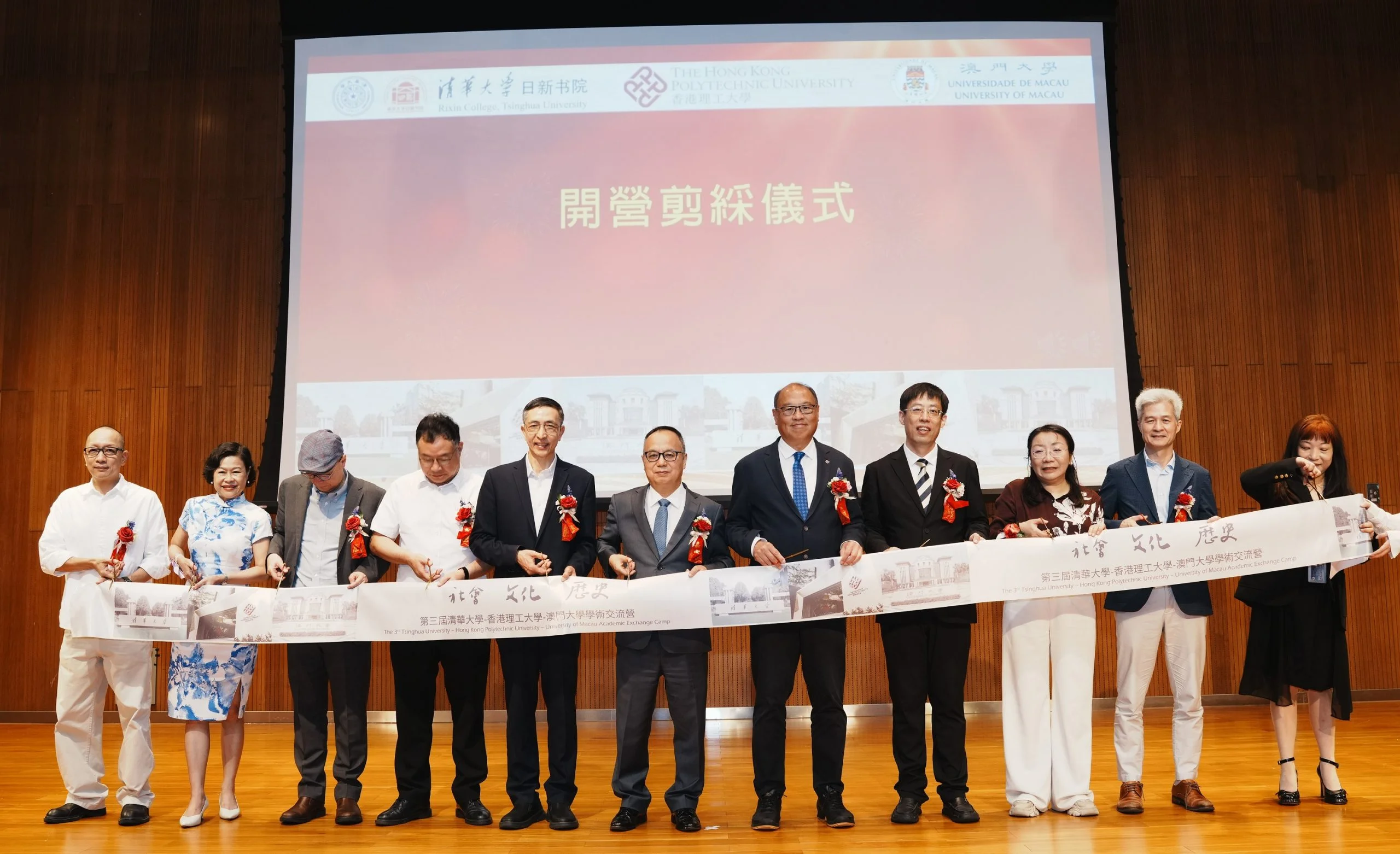
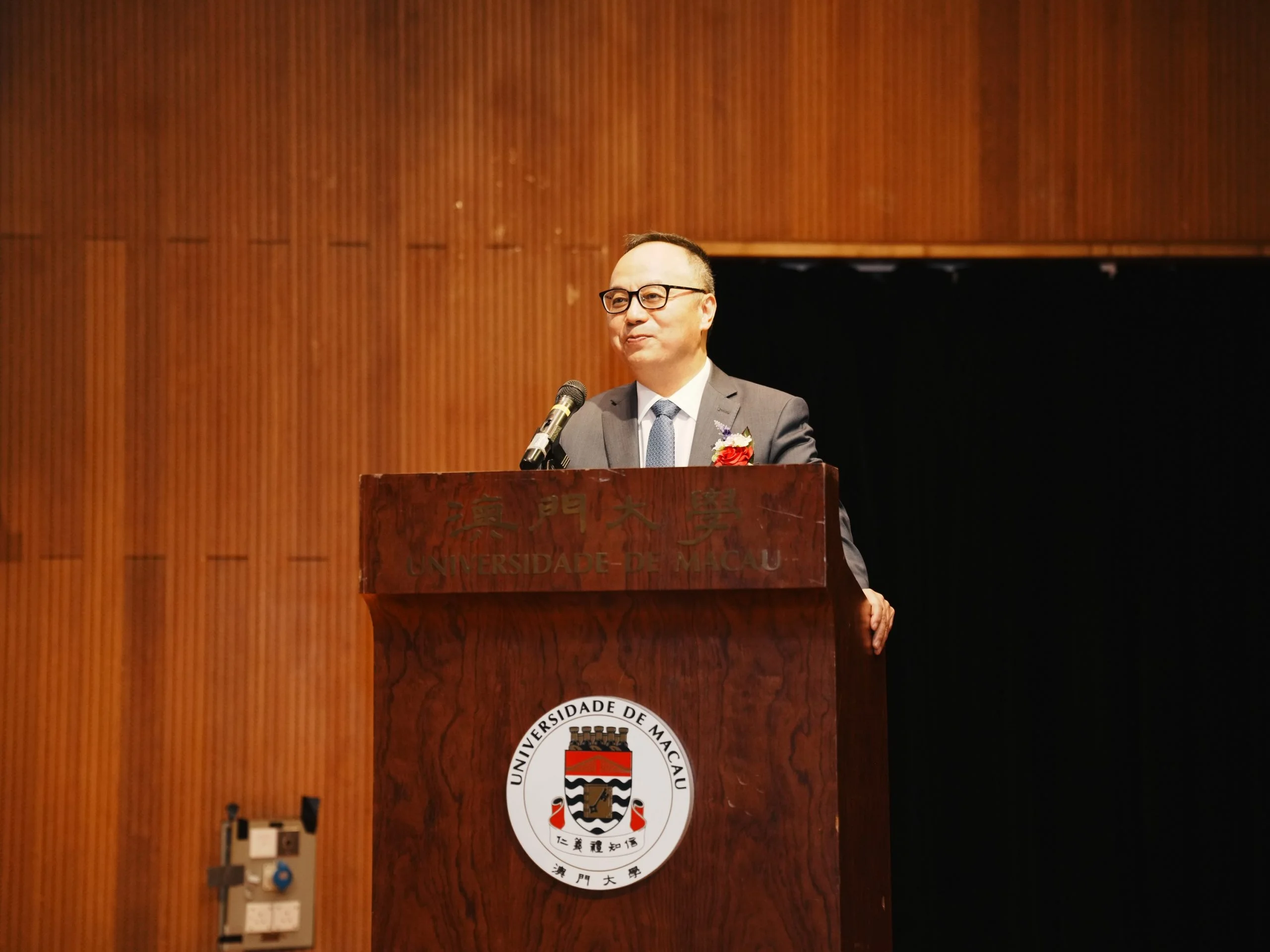
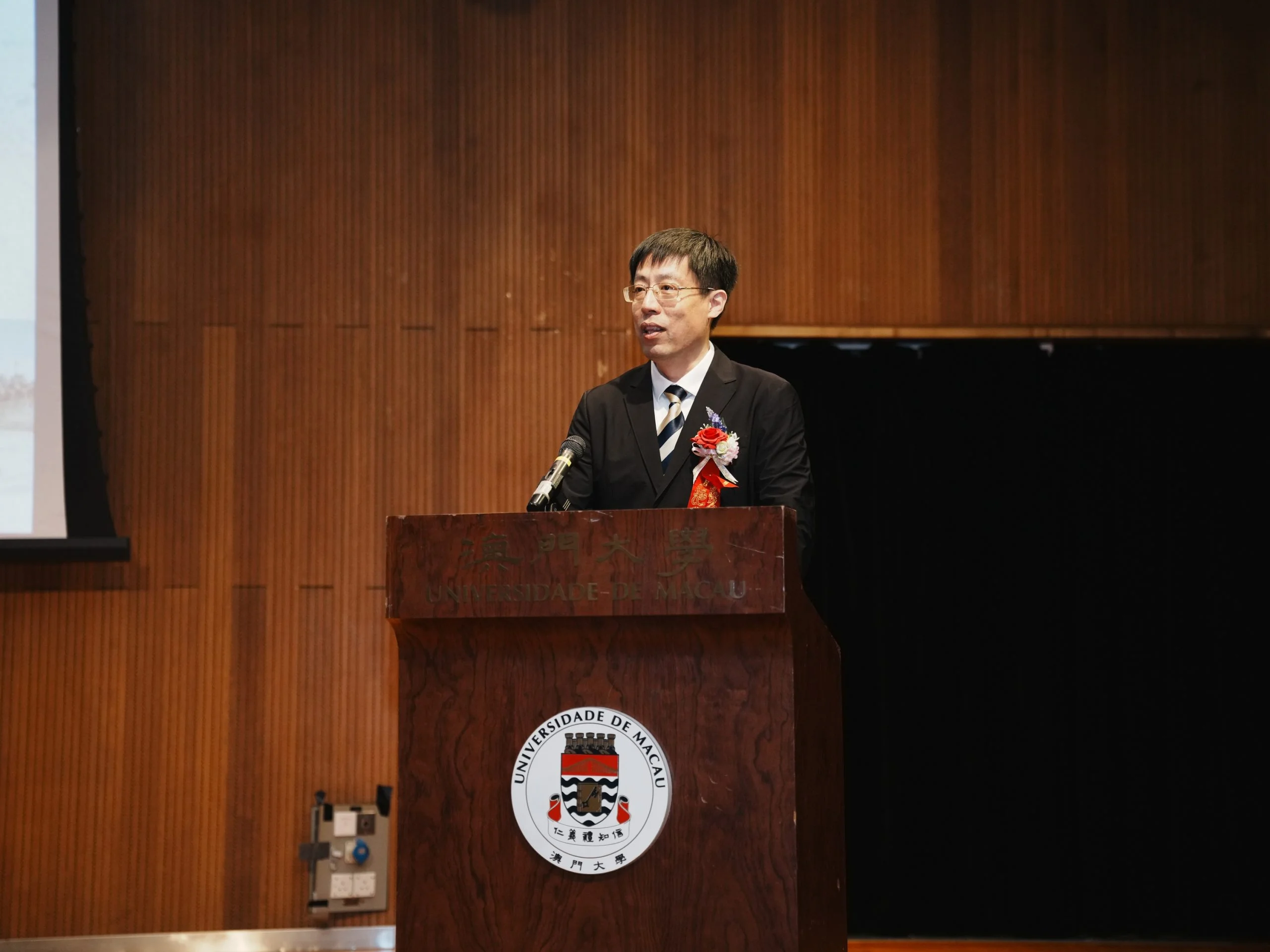
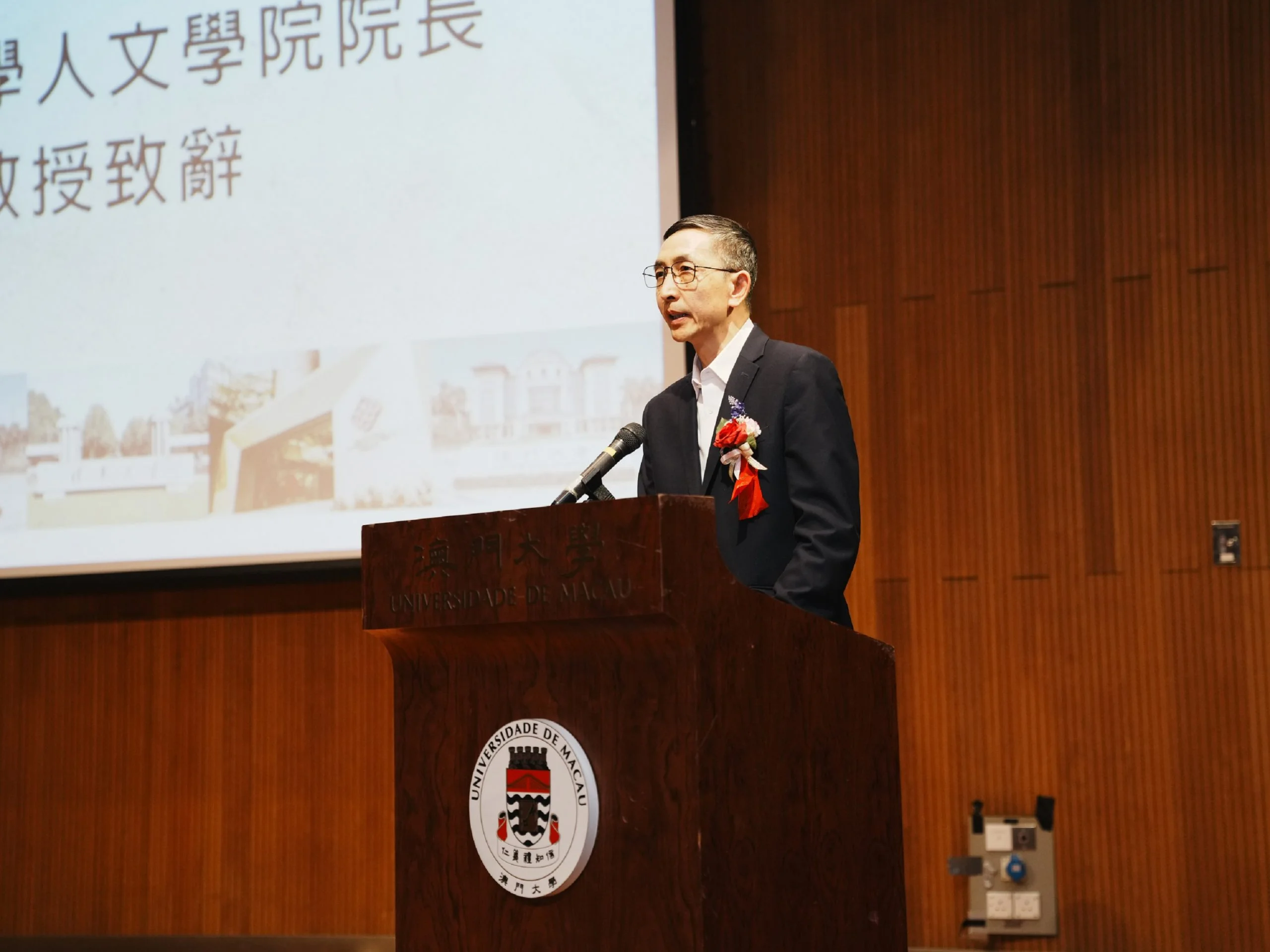
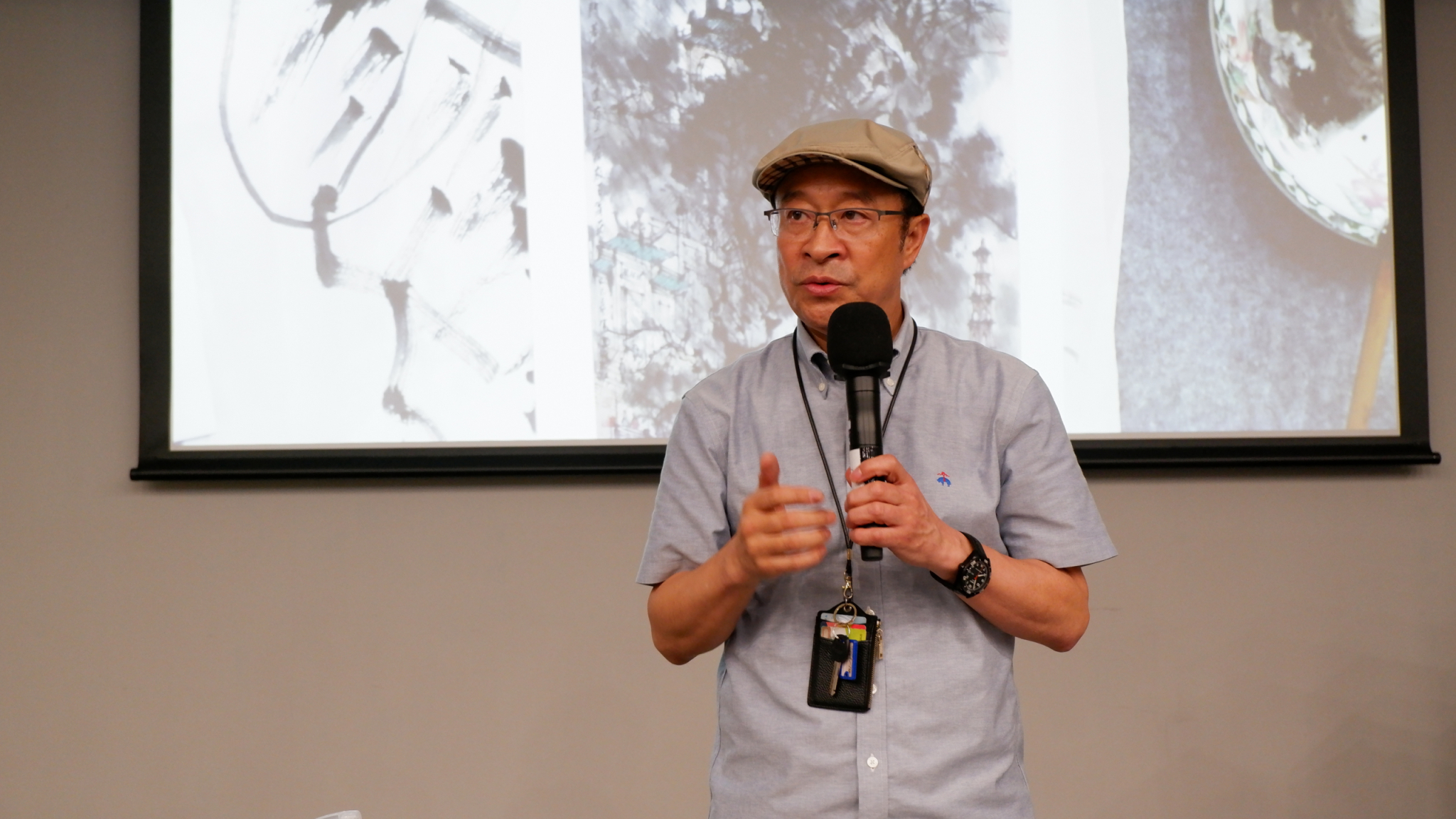
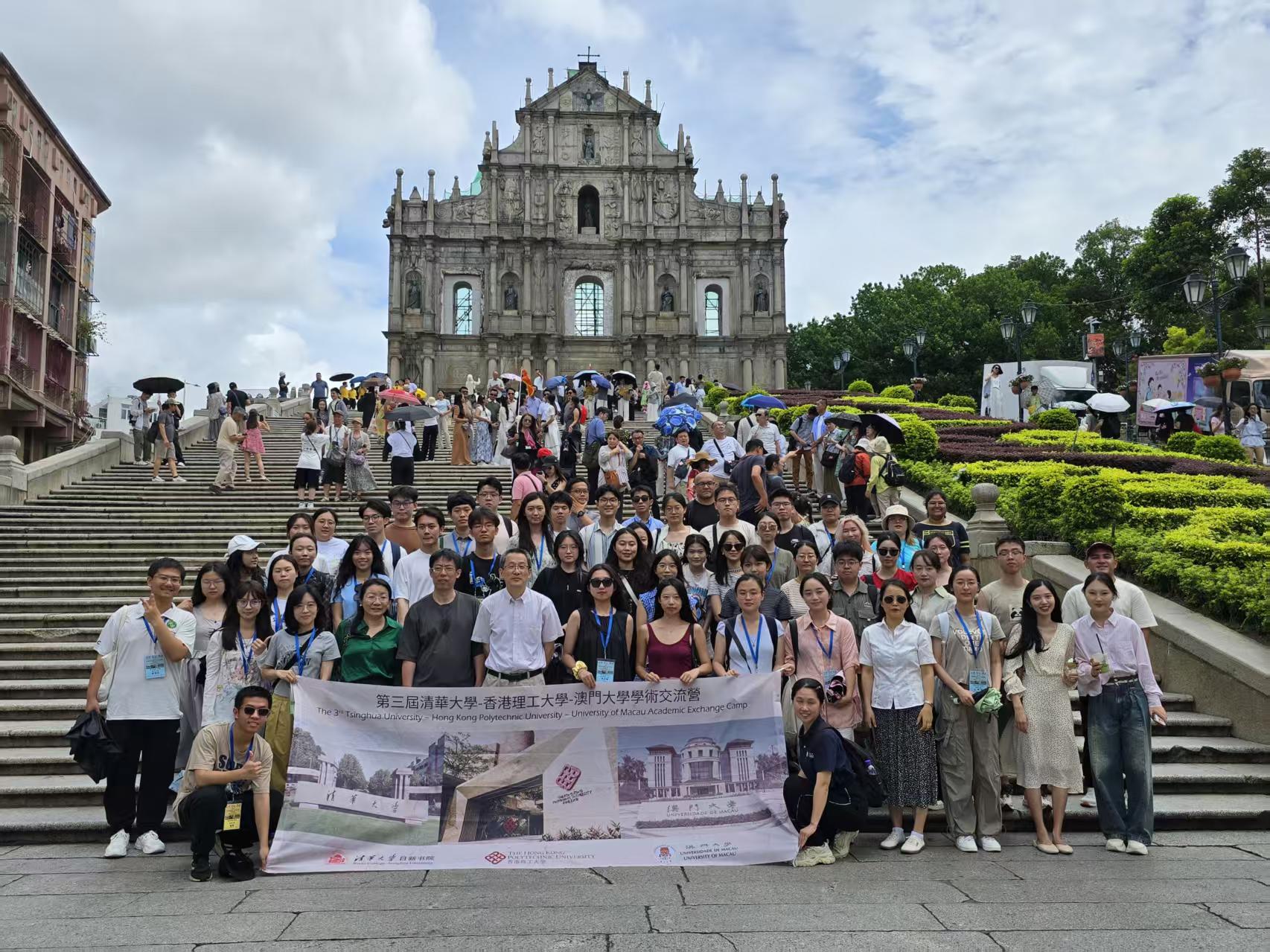
Address: Cultural building (E34), Centre for Chinese History and Culture, University of Macau, Avenida da Universidade, Taipa, Macau, China
